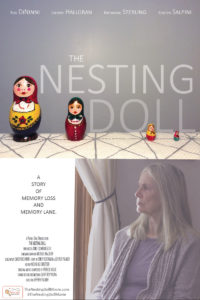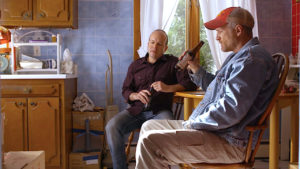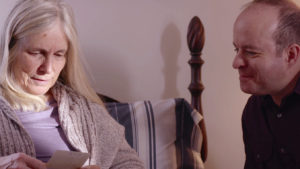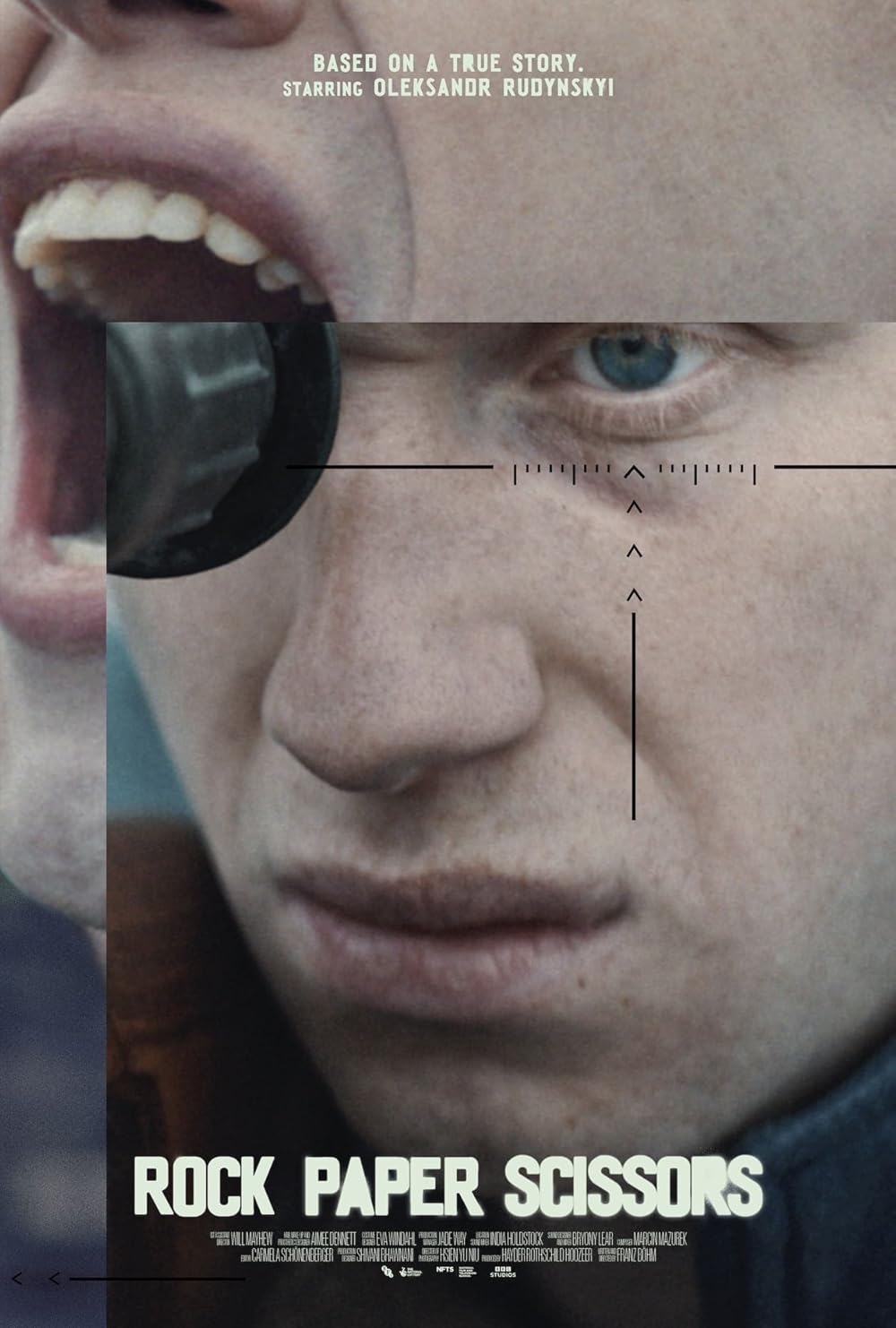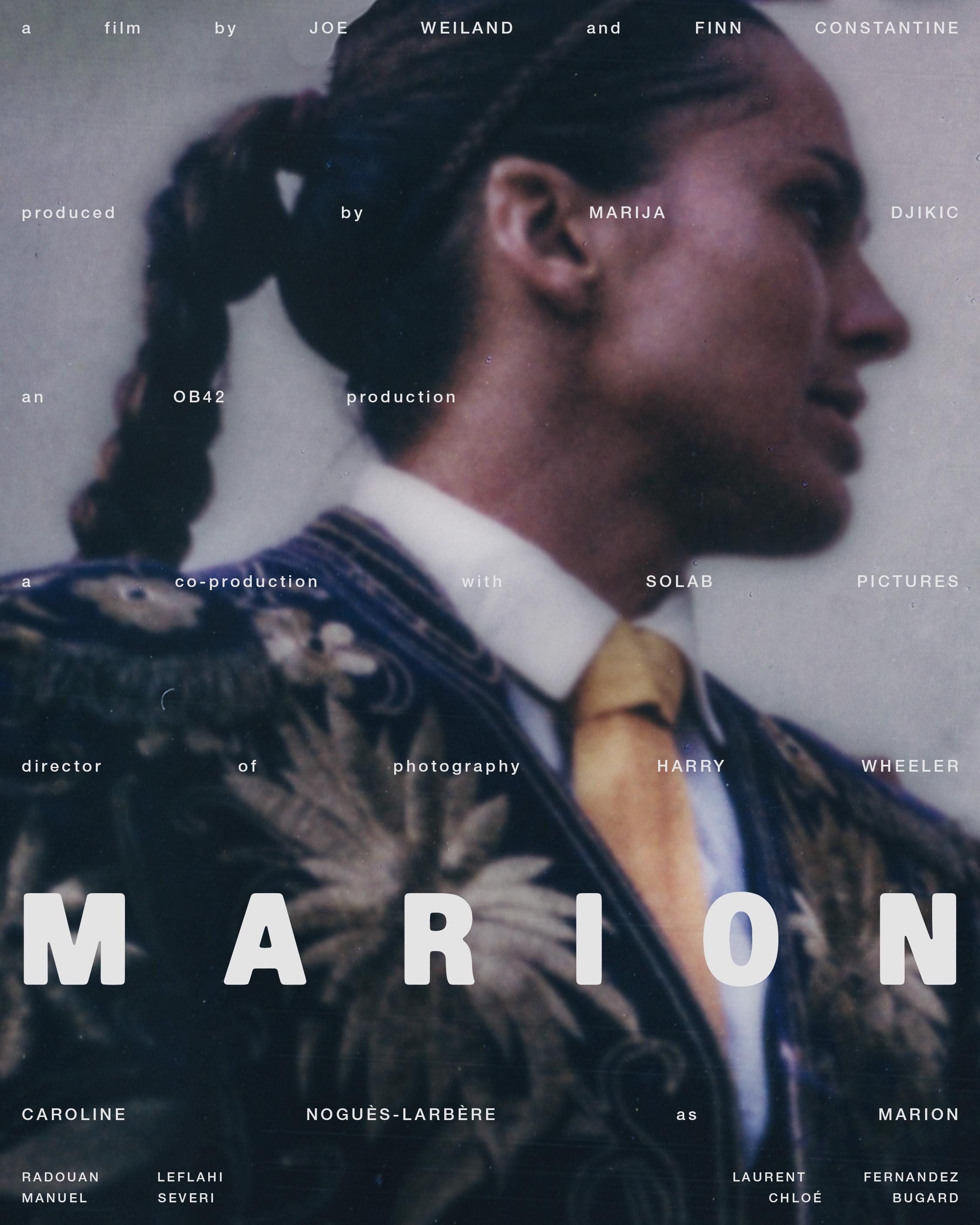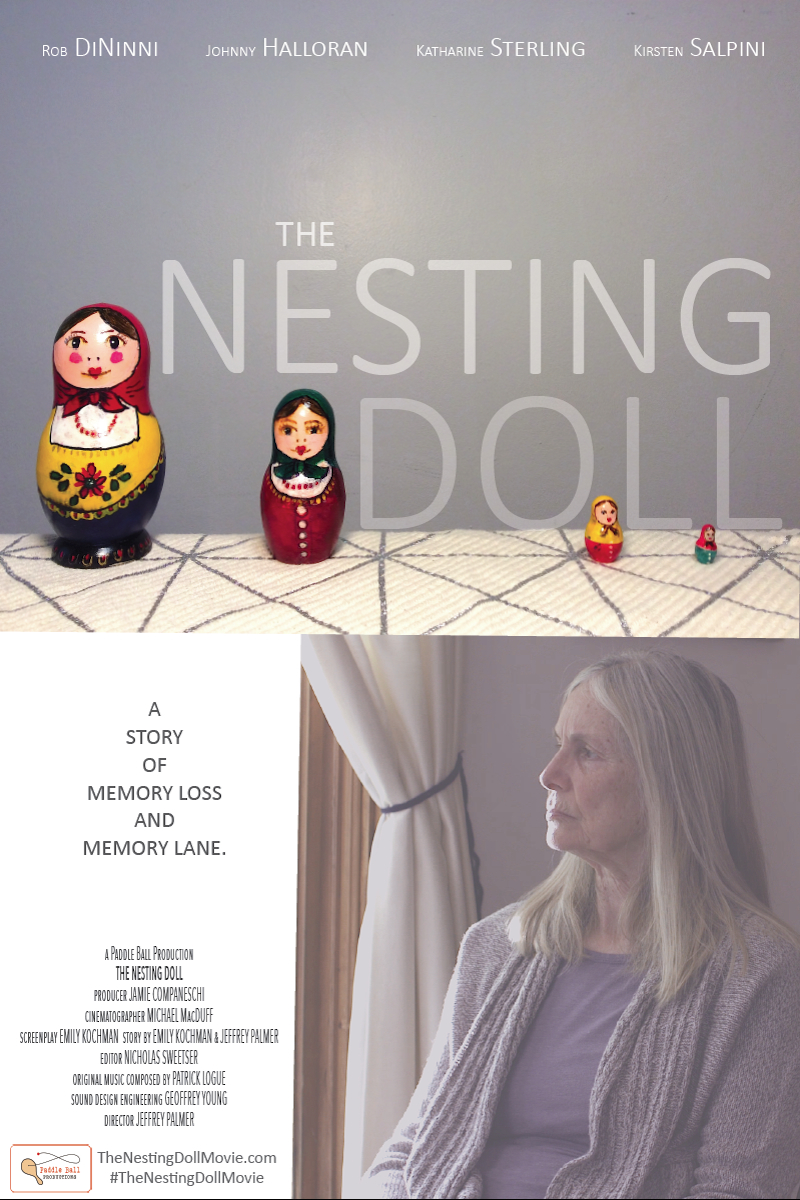
Short Film Review “The Nesting Doll”
WATCH THE TRAILER HERE
First, the Recap:
There’s a reality to face when it comes to watching our parents age. As their child (or children), we’ve known their love, anger, forgiveness, discipline, and support. Yet, if then we are forced to witness memory begin to fade, even to the point of no longer being recognized by them–how do we handle it? How can we help them remember? For William Norris (Rob DiNinni), his days as a caretaker for his beloved but aging mother Eleanor (Katharine Sterling) is coming to a close. Having made the hard decision to place her in a care facility, his emotions run high, despite the additional assistance of a secondary attendant, Janet (Kirstin Salpini).
Believing the choice is right for the circumstances, William is packing up his mother’s belongings when a completely unanticipated appearance is made at the home by his estranged brother Richard (Johnny Halloran). Already operating on frayed nerves, it is an initially less than amicable reunion as tempers flare, accusations fly, blame is assigned and it appears the two men will not be able to resolve their differences, even with Richard’s genuine concern for their mother, which William actually doubts given his brother’s long absence from their lives. However, when all seems hopelessly unsettled, the discovery of a document from the past and its tie to one of their mother’s most prized possessions leads them on a journey of reconciliation, healing, and forgiveness.
Next, my Mind:
Writer/director Jeffrey Palmer follows up 2016’s highly evocative and ardent drama “Split Costs” with this equally affecting 13-minute short film effort that so deftly presents the weighty potency of concepts like aging, the depths of brotherhood and family, the need for love and amnesty, and the immutable power of memory. While not necessarily exclusively the case, one aspect of indie cinema I so often relish is its ability to totally focus on the nuances of each character involved in a given narrative, allowing each and every one to be developed so as to become invested in them as a viewer, which only adds to a film’s intention to grip your attention and engage your wells of emotion, which is very solidly accomplished with this story. It’s simple, yet complex in its portrayal of how we are as human beings when it comes to elements of life we hold deep passion, respect, and devotion to, like parents and family (or one hopes this is the case), and the film’s utilization of this fervent connection fuels both the joyous and the tumultuous moments the characters share while ultimately showcasing the innate strength recognition and reminiscence holds on us. Patrick Logue’s deeply emotive music score adds punch to the proceedings here as well, tugging the heartstrings with acute poignancy.
DiNinni lends a strong sense of realism and urgency in playing William, a man whose life has been anything but normal since making the choice to play fulltime caretaker for his aging mother whose mind is slowly fading away. As he prepares to see this facet of his existence come to a close, there’s a notion of relief perhaps, but also a saddened weariness, since his love for her is beyond contestation. Watching the upheaval caused within him when his long lost brother suddenly reenters the picture is both profound and heartbreaking at first, which only ups the intended conflict between them. It’s an impassioned performance throughout by DiNinni. Halloran brings a more level-headed and calmly composed manner to bear as Richard, William’s brother whose been away from the family as a whole for quite a spell, and whose arrival at home induces less than happy feelings in William. Not desiring there to be such an overt animosity between them, Richard attempts the civil approach in trying to regain his brother’s approval and trust, a tense series of moments that ends up leading to an amazing revelation that in turn so markedly impacts both of them. Halloran’s intensity here is both subdued and blatant, very effectively presented in his performance.
Then there is Sterling as the boy’s mother, Eleanor, a highly convincing enactment of a woman reaching her elder years while maintaining some awareness of current events and people around her while then falling into states of total loss of cognition. In this constantly changing and upsetting reality, she holds on to her precious nesting doll, which we have seen is missing a piece, almost a portent of her current condition, its absolute significance unknown. In a wonderfully stirring finale, it all comes together in multiple ways, both inwardly and outwardly for her, and its so touching to see how eloquently Sterling plays it. The sole supporting role here is presented by Salpini as a caring, in-home assistant whom William has used through the years to help take care of Eleanor. In total, with its persuasive message about the past and its effect on the present while also addressing how even the smallest object can trigger such beautiful recollection and bring about needed inner restoration, “The Nesting Doll” is another winner from Palmer and Co. and a further example of the impactful sway short film can carry.
As always, this is all for your consideration and comment. Until next time, thank you for reading!
